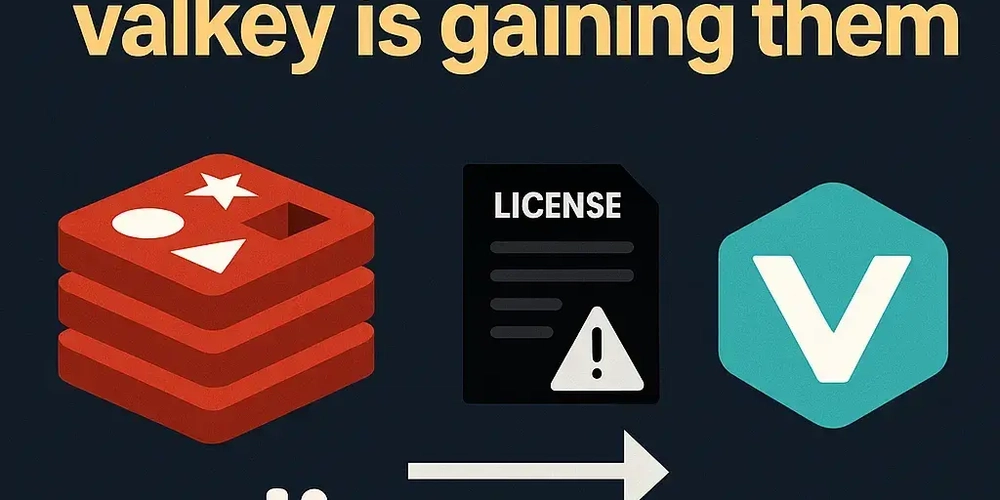Dev
1M
104

Image Credit: Dev
Why redis is losing friends and valkey is gaining them
- Redis, once a beloved in-memory data store, is now facing backlash due to a controversial change in licensing from the permissive BSD license to the SSPL, prompting major Linux distros like Debian, Fedora, Alpine, and openSUSE to drop Redis from their repositories.
- This licensing shift by Redis Labs has caused concern among developers, distro maintainers, and cloud providers, leading to legal uncertainty and a loss of trust in the reliability of Redis for deployment.
- In response to this, Valkey emerged as a community-driven drop-in replacement for Redis, maintaining the old-school BSD 3-Clause license and garnering support from the Linux Foundation for stability and transparency.
- Valkey aims to provide a reliable alternative to Redis without the legal complications, gaining traction among developers and even catching the attention of cloud providers like UpCloud, which now supports Valkey as a core service.
- While Redis still holds recognition for its performance and ecosystem, Valkey stands out for its commitment to trust, openness, and transparency, leading developers to consider making the switch for long-term benefits.
- The shift towards Valkey signifies a broader trend of developers becoming more license-savvy and emphasizing governance and openness in software choice, indicating a potential future where trust carries more weight than legacy brand recognition.
- With Valkey gaining ground and developers increasingly focusing on trust and community-driven projects, the story highlights the importance of not just evaluating code performance but also considering the governance and licensing behind the software.
- Amidst the evolving landscape of in-memory databases and open-source licensing, the focus on trust and community values is reshaping software adoption decisions, with forks like Valkey offering a principled alternative to established but controversial choices like Redis.
- As the industry navigates the implications of open-core licensing and the power of developer communities, the shift towards projects like Valkey serves as a reminder to prioritize trust in both the code and the people behind the software.
- In a world where trust and governance play significant roles in software selection, Valkey represents a move towards more transparent, community-driven alternatives in response to licensing changes that challenge the foundational principles of open source.
- The emergence of Valkey stands as a testament to the importance of trust, governance, and transparency in software choices, signaling a shift towards community-backed, license-conscious solutions over legacy options like Redis.
Read Full Article
6 Likes
For uninterrupted reading, download the app